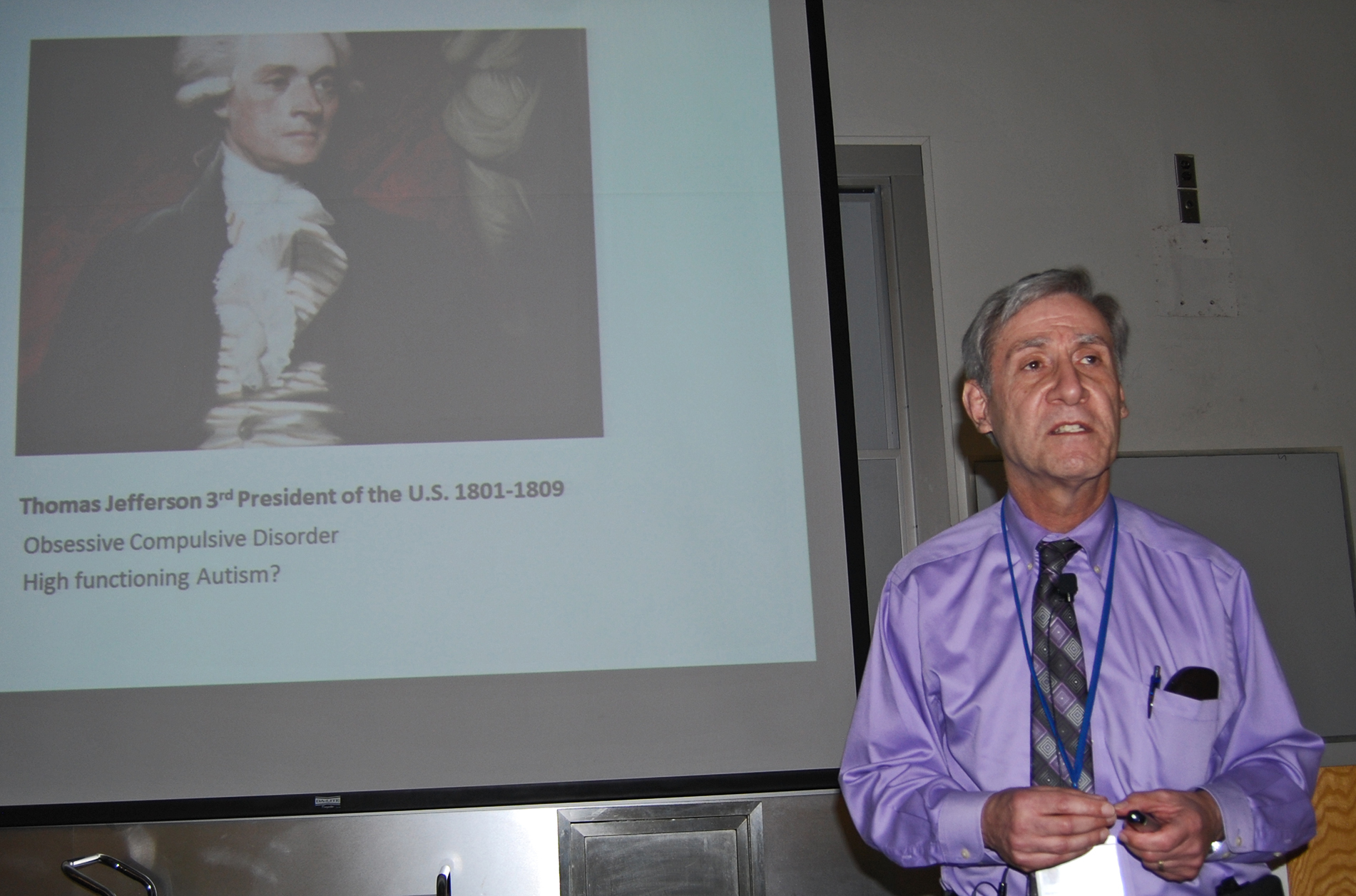February Hangin’ With Zwisch: “Diseases of the Presidents”
TO VIEW THIS PRESENTATION, ENTER YOUR LINK BLUE USERNAME AND PASSWORD.
During a special President’s Day version of the “Hangin’ with Zwisch” medical research lecture series, Dr. Stuart Tobin discussed how the decisions and actions of world leaders may have been influenced by their mental and/or physical health.
Dr. Tobin, who has had a long-standing Dermatology practice at the University of Kentucky, has also applied himself to a study of chronic illnesses that US Presidents and other world leaders suffered while in office. While Tobin cautioned the audience that his presentation should not be considered a formal research project, he did suggest that the subject merited deeper study.
In some cases, extreme measures were taken to conceal news of Presidents undergoing medical treatment. Tobin related a case in which Grover Cleveland, early in his second Presidential term in 1893, made arrangements to have a cancerous tumor removed from his cheek in secret because the administration feared that the news might worsen a downturn in the nation’s economy.
The procedure was performed on board a yacht, the Oneida, with a cover story circulating that Cleveland had merely arranged for a dental procedure.
However, Tobin continued, the implications of the influence of medical and physical illness on the decision-making of world leaders became particularly relevant to the present day in his next example.
His slide show stopped on an iconic photograph of Winston Churchill, Franklin D. Roosevelt, and Joseph Stalin at the Yalta Conference in February 1945, one of three major conferences concerning European reconstruction in the aftermath of World War 2. Tobin pointed out that Roosevelt was suffering from several health problems and would be dead several months later. Historians have suggested that Churchill may have suffered from Bipolar 1 disorder and Stalin was a paranoid sociopath. And it was ultimately up to these three to approve the blueprint for a post World War 2 Europe, Tobin said.
However, while health conditions may contribute to poor decision-making, there is also plenty of evidence that suffering from disease brought to some Presidents an empathy with others who suffer from chronic disease. It is certain that FDR’s crippling polio experience led him to fund polio research and support other lines of medical research.
Speculation on Abraham Lincoln’s periods of profound depression may have been a contributing factor in his stance on the abolition of slavery and his leadership during the civil war.
Tobin brought up numerous other speculations on possible health problems that influenced Presidential decision making from Thomas Jefferson through George W. Bush regarding the wars in Iraq and Afghanistan.
He concluded his remarks by repeating his earlier point that he merely presented anecdotal evidence, but that the idea is worth further investigation.
